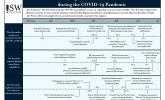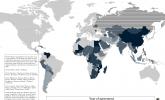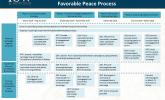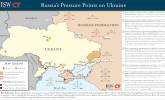The Kremlin Leverages Cyber Cooperation Deals
August 13, 2020 - ISW Press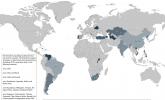
The Kremlin is successfully expanding its global cyber footprint to contest the West by signing cooperation deals in the field of international information and communications technologies (ICTs). The Kremlin prioritizes these deals to set conditions to expand its access to global technical networks and infrastructure, as well as to develop its human networks and institutional links around the world. The Kremlin launched this campaign in 2014, shortly before releasing an updated information security doctrine in 2016, which continues to guide Russian cyber policy. This campaign supports the Kremlin’s strategic goal of subverting Western global influence via nontraditional means. The Kremlin will likely use these deals to increase its cyber-attack capabilities and expand influence in key regions. The Kremlin may additionally use these deals to garner support for a Kremlin-friendly resolution on ICTs in the UN to shape international norms in cyberspace.


